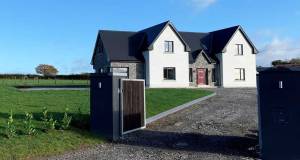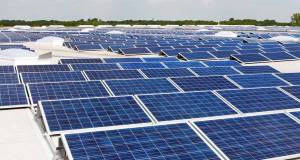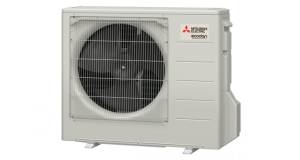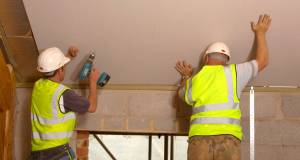- Renewable Energy
- Posted
Renewable Energy Grants (Jeff Colley)

The first scheme of renewable energy grants for Irish homeowners, the Greener Homes Scheme, was launched on Monday 27th March 2006 and will make grant funding available to homeowners looking to install renewable energy heating technology such as solar panels, ground, water and air-source heat pumps, and biomass technology such as wood pellet stoves and boilers. As Jeff Colley reveals, although this represents a welcome indication that the Government is starting to recognise the interest in switching to renewable energy in Ireland, will the scheme help or hinder the development of a strong renewable energy sector in Ireland?
At long last Irish homeowners interested in reducing their heating bills, and protecting the value of their homes as both energy prices rise and energy ratings for buildings come ever closer, have some support from the Irish government. However, there is a long held view in the renewable energy industry that although fiscal mechanisms are to be welcomed, perhaps simply introducing grants is not the best approach.
Certainly in the aftermath of the grants announcement, there was a widely reported and discussed belief that, after stalling for many years, the Government had rushed through a decision to announce the introduction of grants in December’s budget, in order to address many Irish people’s fears of exposure to rising energy costs. Conspiracy theorists were even going so far as to point out the coincidence of the detailed announcement of the grants on Sunday March 26th—the day after the Green Party’s annual conference when it was announced that the party’s popularity approval had risen from 5 to 7%. It had been suggested to the industry that an announcement would be made on March 27th at the earliest. This is a minor point perhaps, but potentially indicative that the Government wanted to compete for Monday’s column inches to limit damage and demonstrate their own green credentials. However, was the announcement of grants merely a knee-jerk reaction to growing public interest, or the result of a well thought-out process revealing full consideration of what fiscal measures would help to develop the uptake of renewable energy technologies?
In an article in Construct Ireland published in 2005, the argument against introducing grants was explained. Speaking at the time, Paul Sikora of Cork based heat pump company Dunstar pointed out that grant schemes can both cause prices to raise and engender a cowboy factor, stating “That’s an argument against any and all grants”, whilst Peter Keavney, Manager of Galway City Energy Agency stated his preference for VAT reduction. “It only takes a small intervention to actually get an indirect grant aid or support, and I think that it should come though the VAT route”, Keavney stated. “We’re not asking to get rid of VAT altogether, we’re saying to take 20% of it off and leave it at 1% so it can be adjusted again accordingly.”
Certainly, Construct Ireland can vouch for the fact that in regular discussions with stakeholders in the renewable energy sector, other fiscal measures such as VAT reduction are generally viewed as more conducive to the long-term development of the renewable energy sector. An interesting example exists in the UK Government’s Enhanced Capital Allowance Scheme, which enables businesses to claim 100% first year capital allowances on investments in energy saving technologies and products. Businesses in the UK are now able to write off the whole cost of their investment against their taxable profits of the period during which they make the investment.

The scheme offers grants at a flat rate of €300 per m2 of solar collectors, and does not differentiate between evacuated tube and flat plate collectors
Regardless of whether grants or other forms of financial incentives are the right approach for Ireland, the fact that such a financial incentive has been developed is reflective of an acceptance at State level that Irish people want secure, sustainable energy supplies. According to David Taylor, Chief Executive of SEI, the scheme has been met with a strongly favourable response.
“The Greener Homes Scheme has been warmly welcomed by many people who are planning or building new homes”, Taylor states. “They are delighted at the prospect of the grant support for investments which they would like to make”. SEI have seen that existing home owners are looking for ways to reduce their heating bills in ways that will protect them from high oil and gas prices now and in the future. The Dublin based renewable energy authority believe that the technologies being supported will benefit the environment and the prospects for competitive renewable energy including pellet fuel supply in Ireland. “So far everyone is a winner – the scheme is seen as good for consumers, business, renewable energy and the environment”, stresses an SEI spokesperson.
For those readers not yet familiar with the breakdown of the grants, it runs as follows:
The grants over this broad range of renewable energy heating systems are available since 27th March 2006 and are not retrospective. SEI stresses its intentions to process applications with two weeks, although it is expected that processing time may take longer to begin with due to the inevitable bottle neck effect caused by the level of interest.
Eligible applicants will include people building new homes and installing a renewable energy heating system, along with people renovating an existing home and replacing the traditional heating system with a renewable energy heating system. The grant scheme only relates to the cost of the product. The cost of the labour to install the product must be covered by the homeowner themselves.
There is a wide range in product prices in the renewable energy sector. The price depends on the size of the home, the size of heating system required and the product quality. The following are indicative prices published by SEI for the various product categories:

Wood pellets are currently available at roughly half the cost of home heating oil
Although it is to be welcomed that SEI have developed criteria for products and, perhaps to a lesser extent at this stage, for installers under the programme, there are perhaps inevitably areas that need further strengthening. For instance, the criteria regarding products are only related to the renewable energy equipment—the heat pump, solar collectors, wood pellet and chip boilers and stoves—and not to associated equipment, such as controls, pipework, water storage tanks and so on. Regarding installers, the absence of standardised, certified training is a particular issue of concern, and one that SEI intend to address over time. SEI, working in a joint venture with its northern Irish equivalent, Action Renewables, is developing the Renewable Energy Installers Academy, which to date has only focused training on border areas. It is intended that the academy will eventually be rolled out nationwide, and it’s anticipated that this could involve accrediting training courses offered by organisations such as the Renewable Energy Skillnet, and even training courses run by renewable energy companies dedicated to installers of their equipment.
Another major concern amongst companies in the renewable energy sector regarding the long-term effects of the scheme on the renewable energy market relates to what happens when grant funding comes to an end. The UK Clear Skies and Major Photovoltaics (PV) Demonstration programmes, which are widely held as being influential to the development of the Green Homes Scheme, will authorise their final grants before the end of 2006. Since their beginnings in 2002, about £43m in grants has been allocated towards small-scale solar PV projects, solar hot-water systems, micro-wind installations, wood pellet and wood chip stoves and boilers, and heat-pumps, either at the level of individual households or small communities, typically funding 10-50% of a project's cost. Clear Skies and PV Demonstration are due to be replaced by a Low Carbon Buildings (LCB) programme; but this will not be in place before April at the earliest, and will not issue its first grants until the middle of 2007.
This is expected to create a hiatus of at least seven months in which no grants can be obtained. "The industry is very dependent on a regional and local skilled installer base," stresses John Blower, of Filsol Solar in south Wales, who chairs the Solar Trade Association, the trade body for solar hot-water installers.
"And what's given some confidence to local installers has been the growth in the individual home-owner sector, where grants from government have been a sweetener to householders to invest in their own systems."
The UK Department of Trade and Industry's consultation document on LCB acknowledges that a skilled installation sector is the key issue if more households are to switch from traditional fossil-fuel technologies to small-scale renewables. "It is vital to ensure that an adequate skills base is developed... to be capable of installing and maintaining the various micro-generation technologies," it says.
Yet industry bodies in the UK believe that the gap between the funding programmes will in fact have the opposite effect, and reduce the skills base. "That bread and butter work is going to disappear for months at least, which is going to drive some companies out of the market; they'll revert to fitting oil or gas boilers," observed John Blower.

The long-term effects of the Greener Homes Scheme remain to be seen. There is a somewhat compelling argument that, should energy prices continue to rise, as many analysts expect, to unprecedented levels, people will be forced to switch en masse to renewable energy technologies enjoying a new found status as the unquestionably economic solution, irrespective of grant funding. At the very least in this scenario, the development in terms of training and product certification associated with the Greener Homes Scheme will hopefully help to ensure that, should this situation arise, the renewable energy sector will have grown to such a level as to be able to cope with the demands of becoming the conventional, rather than alternative, energy choice.
- Articles
- renewable energy
- Renewable Energy Grants
- renewable
- energy
- grants
- greener home scheme
- wood pellet
- stoves
- boilers
- solar
- heat pumps
- peter keavney
Related items
-
Grant integrated heating packages installed for 61 homes in Rathdrum
-
New scheme offers up to €75,000 retrofit loans at low cost
-
 Offaly new build installs Grant integrated heating package
Offaly new build installs Grant integrated heating package -
Is it okay to retrofit heat pumps before building fabric?
-
Government supported almost 27,200 home energy upgrades through SEAI in 2022
-
 Solar panels to receive VAT drop in aim to boost uptake
Solar panels to receive VAT drop in aim to boost uptake -
 Hevac launches hot water heat pump with green refrigerant
Hevac launches hot water heat pump with green refrigerant -
 Viessmann launch two new compact heat pumps
Viessmann launch two new compact heat pumps -
 The world energy crisis 2022
The world energy crisis 2022 -
 Mitsubishi heat pumps 6-7 times lower CO2 than condensing gas boilers
Mitsubishi heat pumps 6-7 times lower CO2 than condensing gas boilers -
Huge demand for new deep retrofit grants
-
 Major new grants for retrofit & insulation announced
Major new grants for retrofit & insulation announced



